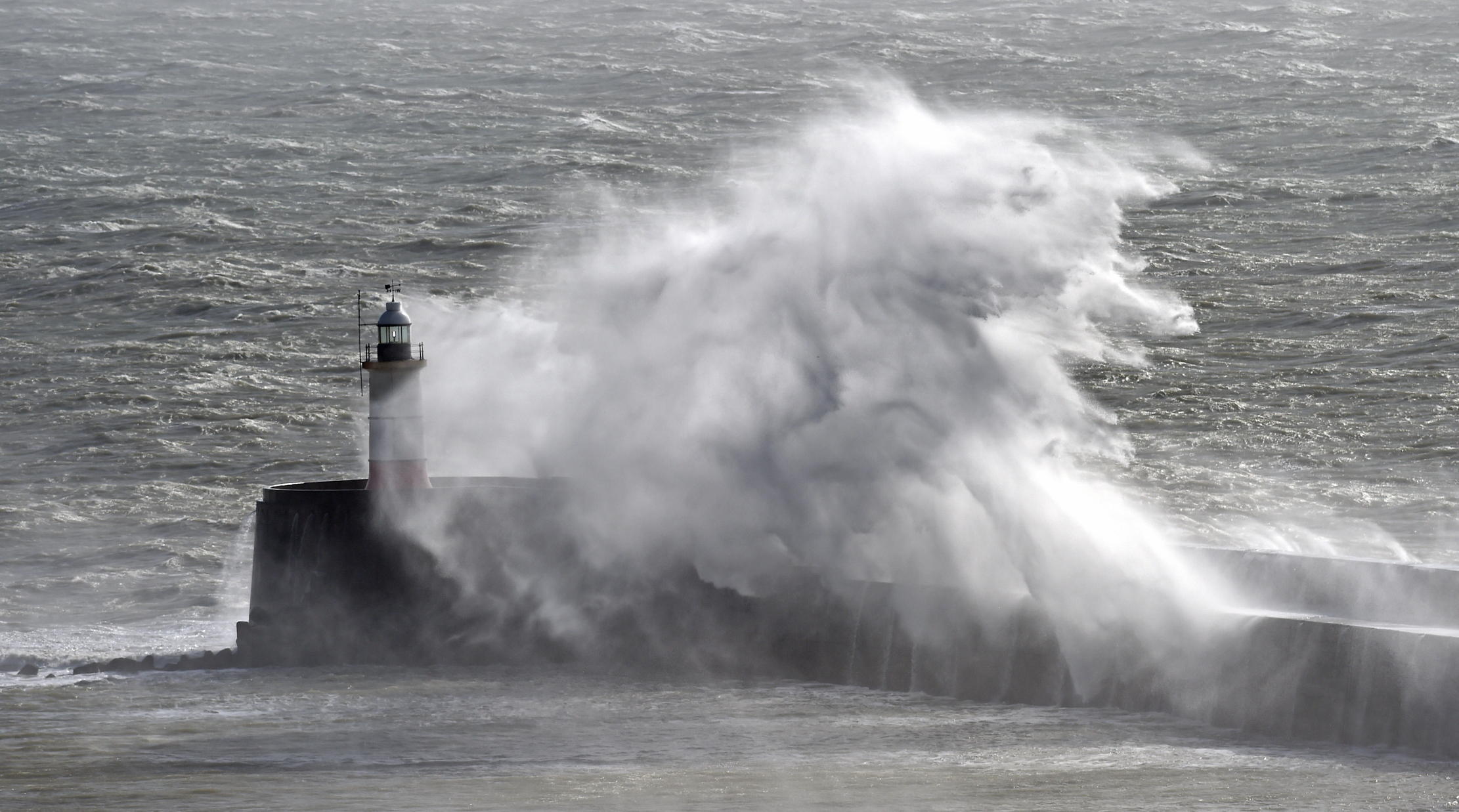100 years of the Shipping Forecast, winning the war on antibiotics and the world's best young cheesemonger
Plus a sublime Scottish castle, how to address people correctly and the quiz of the day.


Three cheers for the Shipping Forecast
The shipping forecast is about the most British thing I can think of. It holds a grim fascination for many of us, especially those (such as myself) who do not have a clue what any of the words, numbers or locations mean. Its mystery is almost its beauty.
This year it is celebrating its 100th birthday, and that has been celebrated in a new book by Meg Clothier, who herself has plenty of experience of the sea, having sailed from England to Alaska. Jack Watkins did us the solid work of reviewing it, which you can read below.
Daniel Defoe saw the Great Storm of 1703 as proof ‘that there is some such thing as a God’. A belief in extreme meteorological events as divine reprimands to erring humans continued for long after. However, in 1854, Vice-Admiral Robert FitzRoy, previously captain of HMS Beagle on Charles Darwin’s South American voyage, was given charge of a new government department that eventually became the Met Office. The establishment of 13 telegraph stations around the coast of Britain and Ireland allowed him to monitor the likelihood of forthcoming gales and alert mariners. He produced his first storm warning in February 1861.The first ever public weather forecast, compiled by FitzRoy, was published in The Times six months later. Queen Victoria had personalised forecasts for the Isle of Wight. It did not end well for FitzRoy, however. Some inaccurate forecasting drew criticism from an already sceptical scientific establishment and his department’s budget was cut. He took his own life in 1865. Yet the forecasts, initially axed, were soon back by public demand. By the 20th century, they were on the radio. The first iteration of the Shipping Forecast was launched in 1924 and broadcast on BBC radio in 1925. FitzRoy, at least the largest forecast area on the chart, is named in its founder’s honour.Here is a celebration of weather-related themes, rather than a history of weather forecasting in Britain. There’s a chapter that attempts to explain to landlubbers some of the mysterious Shipping Forecast terminology (severe gale 9, storm force 10) and the locations of the area names (German Bight, Biscay). Listeners are likened to a broad, ecumenical community ‘who know they are listening as one’. Yet, although the British seem obsessed with their weather, of the 31 areas on the Shipping Forecast grid, fewer than half touch a shore that could conceivably be called British.The weather’s impact on Channel crossings, from Julius Caesar to today’s hapless migrants and refugees, is discussed, by which stage the reading for the day that the Spanish Armada and Sir Francis Drake squared up—‘Humber, Thames, Dover, south or southwest, 6 to 7, showers, moderate, occasionally very poor’—should make sense. Unfortunately, the book’s tone is off-puttingly flippant. However, most of us would agree with the ironic observation that Defoe and company were right all along: ‘When it comes to climate (as opposed to weather), it is all our fault.’
Quiz of the day
1) In which year was Channel 4 launched?
2) What is Hansen’s disease more commonly known as?
3) Which artist created the lions at the foot of Nelson’s Column?
4) If something is anserine, what type of bird does it relate to?
5) Which king was the target of the Rye House Plot?
Exquisite houses, the beauty of Nature, and how to get the most from your life, straight to your inbox.
Avoiding oblivion
Life is full of little terrors that linger in the mind. The creeping march of death. Taxes. Climate change. Dental health. These little things, that live in our heads, have a sense of inevitability, but we are also deeply conscious that we cannot control them. Another example that certainly lives in my head is antimicrobial resistance.
Basically, the scientific theory goes that the more we use antibiotics, the sooner and more likely it is that bacteria will evolve to resist them. The biggest issue is not necessarily human use, but rather its use in livestock farming. There is a point where we would no longer be able to defend ourselves from illnesses that are currently easily treatable, shepherding in a new plague or something equally annoying.

This is all a bit depressing, so I have decided to come with good news. A recent report from Defra shows that the total quantity of antibiotics sold for livestock remains at the lowest level to date, with multi-drug resistance in pigs and poultry reduced to an all-time low. In layman’s terms, we’ve learned to kick the habit of endless antibiotic use, and thus are slowing down (or potentially stopping) the creation of some kind of super-bug. Hooray.
The report says that since 2014, antibiotic sales in food-producing animals have reduced by 59%, which is a lot. 'This year’s UK-Veterinary Antimicrobial Resistance and Sales Surveillance report demonstrates how continued collaboration is helping to maintain progress in the responsible use of antibiotics thereby stemming the AMR tide,’ says Christine Middlemiss, the UK’s chief veterinary officer. ‘It is crucial that we continue to work with our farmers and vets as well as our counterparts internationally on tackling this One Health risk.’
I would agree. It’s nice to have one less thing to worry about.
An old castle that looks like a new castle

Brankstone Grange certainly carries all the usual characteristics of a Scottish castle. That is, until you step inside.
Who is the best young cheesemonger in the world?
The future of cheese is in safe hands it seems, with those hands belonging to Daniel Iliev, a 28-year-old cheesemonger from Bulgaria, who was crowned the Young Cheesemonger of the Year. The award, organised by the Academy of Cheese and sponsored by Peter’s Yard and the Guild of Fine Food, is dedicated to recognising and celebrating emerging talent in the cheese industry.
Mr Iliev currently works at Paxton & Whitfield in London, and has also gained experience at the Fine Cheese Co and La Fromagerie. He beat out contestants from around the world and impressed the judges with his perfect pairing, even though he had to improvise after his black garlic jam was seized at Gatwick Airport.

‘Winning means such a lot to me,’ Mr Iliev said. ‘The competition was fun, challenging and fantastic for connecting with other people in the industry.’ Mr Iliev noted that he trained for 8 weeks for the competition, and was supported by his employers at Paxton & Whitfield. His prize includes an Academy of Cheese Level Two course, a feature in Fine Food Digest, a cheesemonger tool set from BOSKA Pro, as well as the opportunity to judge at next year’s World Cheese Awards in Switzerland.
Lords, ladies and gentlemen
It's not great when Tatler and even Oxford University don't know the correct way to address someone. Thankfully, Eleanor Doughty is here to put them right.
That's all for today, we'll be back tomorrow
Quiz answers
1) 1982
2) Leprosy
3) Sir Edwin Henry Landseer
4) A goose
5) Charles II

James Fisher is the Digital Commissioning Editor of Country Life. He writes about motoring, travel and things that upset him. He lives in London. He wants to publish good stories, so you should email him.